Search
Search Results
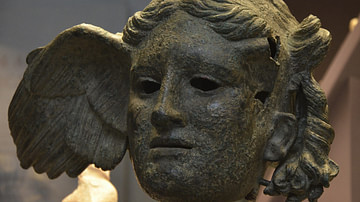
Definition
Mythology
Myths are a part of every culture in the world and are used to explain natural phenomena, where a people came from and how their civilization developed, and why things happen as they do. At their most basic level, myths comfort by giving...
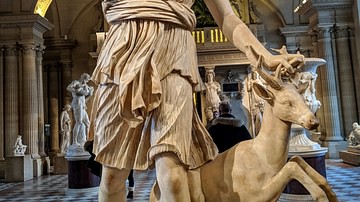
Definition
Artemis
Artemis was the Greek goddess of hunting, wild nature, and chastity. Daughter of Zeus and sister of Apollo, Artemis was a patron of girls and young women, and a protectress during childbirth. Artemis was widely worshipped but her most famous...
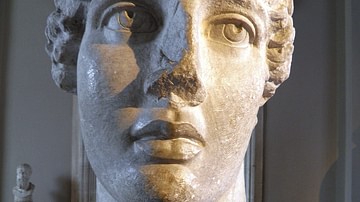
Definition
Lesbos
Lesbos, a Greek island located in the eastern Aegean, had several prosperous city-states which thrived from the Bronze Age to the Byzantine era. Switching many times between independence, Persian and Greek control, Lesbos was often a victim...

Video
The Curse of the House of Atreus
There aren't many families in ancient greek Mythology that were quite as unlucky as the house of Atreus and the multiple curses that plagued the household over multiple generations. Atreus was the mythical Greek king of Mycenae. He is perhaps...

Video
The Mycenaeans: A Civilization of Bronze Age Greece
The Mycenaeans are considered the earliest Greeks, and were a prosperous civilization of the Late Bronze Age on the Greek mainland. This video is an introduction into the history of the Mycenaean civilization, and takes you through the rise...
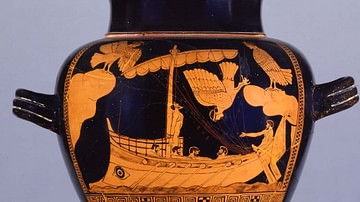
Definition
Odyssey
Homer's Odyssey is an epic poem written in the 8th century BCE which describes the long voyage home of the Greek hero Odysseus. The mythical king sails back to Ithaca with his men after the Trojan War but is beset by all kinds of delays and...

Interview
Interview: Arcadian Days by John Spurling
Join World History Encyclopedia as they sit down with John Spurling to talk about his new book of Greek mythology retellings Arcadian Days, published by Pegasus Books. Kelly: Thank you so much for joining me to talk about your book Arcadian...

Image
Myth of Iphigenia Mosaic, Empuries
A Roman floor mosaic emblemata depicting the myth of Iphigenia and her (almost) sacrifice by Agamemnon, her father, prior to the Trojan War. From a Roman villa, Empuries, 1st century BCE. (Archaeological Museum, Empuries, Spain)
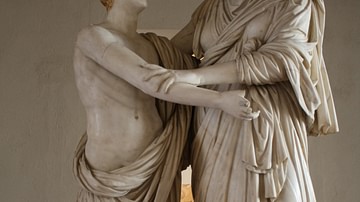
Image
Orestes & Electra
A marble representation of Orestes and Electra, the children of Agamemnon from Greek mythology. They stand before the tomb of their father and are in mourning as indicated by the postures and short hair of Electra. A stele behind Orestes...
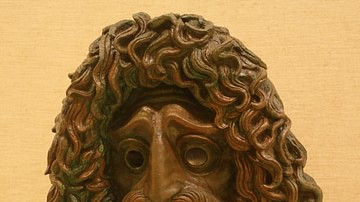
Definition
Ancient Greek Tragedy
Greek tragedy was a popular and influential form of drama performed in theatres across ancient Greece from the late 6th century BCE. The most famous playwrights of the genre were Aeschylus, Sophocles, and Euripides and many of their works...